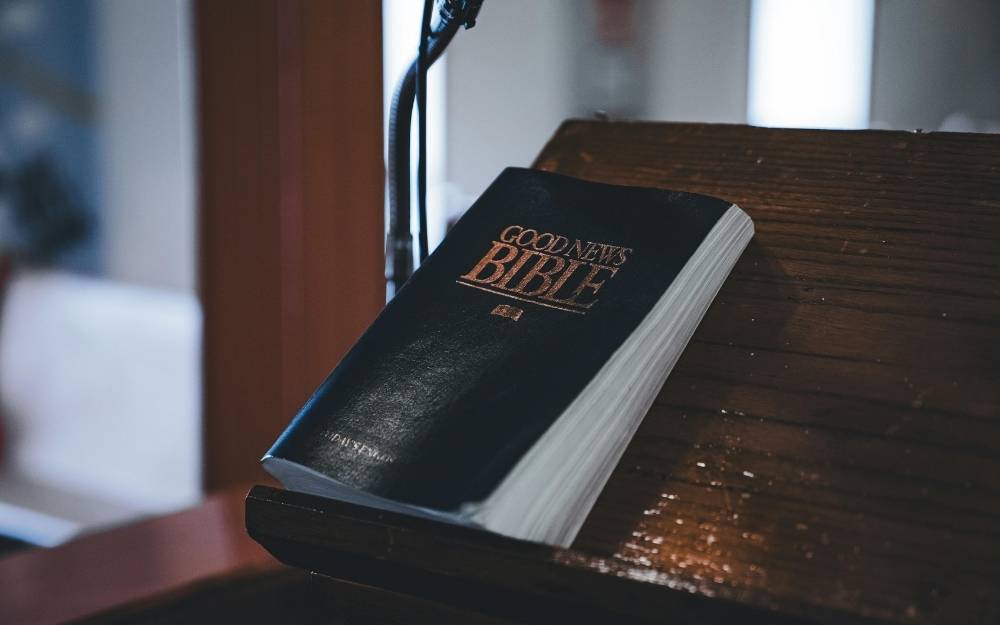Used Bible Bargains: Affordable Editions Available Now
Are you searching for an affordable yet meaningful gift or perhaps a personally enriching addition to your collection? Buying a used Bible might hold the key to both cost-effectiveness and spiritual enrichment. From eBay to thrift shops, myriad options exist for obtaining different editions of used Bibles at prices that accommodate various budgets. Whether you’re after a rare gem or a simple study Bible, understanding how to find the best deals can reveal a treasure trove of spiritual wisdom in the palm of your hand. Read on to discover how you can secure these timeless texts affordably.
Discovering Affordable Used Bibles
Used Bibles are accessible through several convenient avenues, both online and locally. Online platforms such as eBay provide a vast selection of used Bibles for sale, catering to various preferences in terms of editions and conditions. These platforms allow users to compare prices and conditions easily, making it simpler to find a bargain. Locally, thrift shops and bookstores often carry used Bibles, providing the advantage of inspecting the condition firsthand. These venues can be especially beneficial for those seeking cheap used Bibles, as they frequently offer lower prices compared to online listings.
- Search online platforms like eBay for a wide selection and competitive prices.
- Visit local thrift shops for potentially lower prices and the ability to inspect items.
- Compare prices across different sellers to find the best deal.
- Consider purchasing Bibles in bulk if available, which may offer additional savings.
- Be patient and check regularly, as new listings can appear frequently.
The price of used Bibles can vary widely based on factors such as rarity, edition, and condition. Common editions in good condition are often more affordable, while rare or historical editions can command higher prices due to their collectible nature. The physical state of the Bible, including any annotations or damage, also affects its value. Buyers should be mindful of these variations to ensure they make an informed purchase that aligns with their budget and preference.
Evaluating the Condition of Second-Hand Bibles
When purchasing second-hand Bibles, it is crucial to thoroughly assess their physical condition to ensure you are making a worthwhile investment. The first step is to inspect the Bible for any obvious signs of damage, such as torn or missing pages, which could affect the readability and completeness of the text. Additionally, check the binding for wear and tear, as a loose or damaged spine can compromise the structural integrity of the book. Ensuring that the Bible is complete and in a readable condition is vital for both personal use and collection purposes.
- Look for any torn or missing pages.
- Check the binding for signs of wear or damage.
- Ensure that all text is legible, without significant fading or smudging.
- Examine the cover for durability and any significant wear.
Annotations or personal notes within a Bible can significantly influence its value, particularly for collectors who appreciate the historical or personal context they provide. These markings can transform an old used Bible into a unique piece with added sentimental or historical significance. Collectors may find value in the insights and reflections left by previous owners, making such editions more desirable. Therefore, while assessing a Bible, consider how these annotations might enhance or detract from its overall appeal and value.
Choosing the Right Edition and Translation

Selecting the appropriate Bible edition and translation is crucial for fulfilling individual needs and preferences. Various translations, such as the New International Version (NIV) and King James Version (KJV), offer different interpretations and language styles. The NIV is known for its contemporary language, making it accessible for modern readers, while the KJV is cherished for its historical and literary value. Those seeking in-depth study might opt for a study Bible, which includes additional resources like commentary notes and maps. Understanding these differences is essential to ensure the chosen Bible resonates with one’s reading and spiritual practices.
- New International Version (NIV): Modern language, widely accessible.
- King James Version (KJV): Historical, traditional language.
- English Standard Version (ESV): Literal translation, maintaining original text integrity.
- New Living Translation (NLT): Easy to read, thought-for-thought translation.
- Study Bibles: Offer additional commentary and resources for deeper understanding.
Historical significance can greatly influence the decision when purchasing a used Bible. Editions with a rich history, such as early prints of the KJV, hold additional value for collectors and history enthusiasts. These editions can provide insight into the evolution of biblical texts and may contain unique features, such as original annotations or unique binding styles, that enhance their worth. Buyers interested in historical or rare editions should consider these aspects to enrich their collection or personal library.
| Edition | Translation | Key Features |
| NIV | New International Version | Contemporary language, accessible |
| KJV | King James Version | Traditional language, historical |
| ESV | English Standard Version | Literal translation, text integrity |
| NLT | New Living Translation | Easy to read, thought-for-thought |
Where to Buy Used Bibles Online and Locally
Online marketplaces, such as eBay, provide a vast array of used Bibles, catering to various preferences in editions and conditions. These platforms allow buyers to easily compare prices, conditions, and availability, making it convenient to find used Bibles for sale online. However, it’s essential to read descriptions and reviews carefully to ensure the authenticity and quality of the purchase. The wide selection available online often includes rare editions, making it a suitable option for collectors and casual readers alike. Shipping costs and delivery times are additional factors to consider when buying online, as they can vary significantly depending on the seller’s location.
- Local thrift shops often have a selection of used Bibles available.
- Visit second-hand bookstores for a chance to find unique or rare editions.
- Church sales sometimes offer used Bibles, particularly after events or fundraising activities.
- Community libraries occasionally hold sales where used Bibles can be acquired.
Purchasing used Bibles locally, such as from bookstores or thrift shops, has the distinct advantage of allowing buyers to inspect the condition of the Bible firsthand. This direct inspection helps ensure the book’s physical state meets the buyer’s standards, particularly regarding page integrity, binding condition, and any annotations. Additionally, local purchases often eliminate shipping costs and provide immediate ownership, making it a more practical choice for those who prefer to see the product before buying. This can be especially beneficial for individuals looking to find used Bibles near them, as it supports local businesses and communities.
Donating and Recycling Used Bibles
Donating used Bibles offers a dual benefit: supporting those in need and promoting environmental sustainability. By passing on these used Christian books, individuals contribute to a circular economy, reducing waste and ensuring that valuable resources are reused rather than discarded. This act of generosity can provide spiritual enrichment to communities lacking access to such materials while simultaneously minimising the environmental impact associated with producing new Bibles. The social impact of donating used Bibles extends to educational and religious organisations, providing them with resources to support learning and spiritual growth.
Examples of places where used Bibles can be donated include local churches and religious organisations, which often have programmes to distribute Bibles to communities in need. Charitable groups, such as Christian missions or international aid organisations, frequently accept these donations to support their outreach efforts. Additionally, some libraries and community centres welcome book donations, including used Bible books, to enhance their collections and provide resources to a broader audience. These initiatives ensure that used Bibles find new homes and continue to serve a purpose, reinforcing the values of faith and sustainability.
Final Words
Discovering an affordable used Bible can enhance one’s spiritual practice without breaking the bank. Various marketplaces, such as eBay and local bookstores, offer diverse options in terms of editions, translations, and conditions. It’s essential to assess the physical state of a second-hand Bible, considering any damage or added notes, which might affect its value.
Choosing the right edition requires an understanding of different translations and historical contexts. Online platforms and local shops both present advantages for acquiring used Bibles, offering a range of purchasing experiences.
Donating and recycling used Bibles promote sustainability and support individuals seeking spiritual guidance. Engaging in these practices not only benefits recipients but also contributes positively to the community. Exploring these opportunities helps ensure the continued circulation and appreciation of these spiritual texts.

Jonathan explores the intersection of film and emerging technologies, analyzing how virtual reality, AI, and interactive storytelling are shaping the future of cinema.


